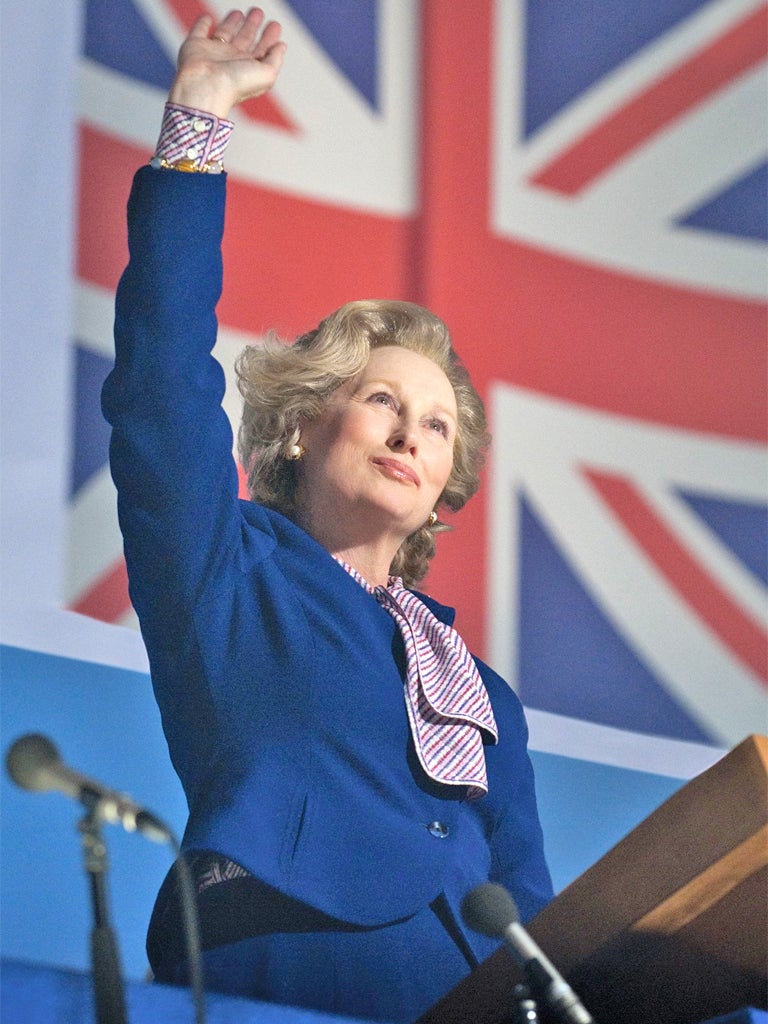Box office feels force of North's loathing of the Iron Lady
New film on Margaret Thatcher has pulled in the viewers – and divided the country

She was divisive in Downing Street, divisive at the polling booth and now, somewhat inevitably, she's proving divisive at the box office.
Click HERE to view graphic
Early takings for The Iron Lady, the long-awaited and controversial Margaret Thatcher biopic that hit cinemas on Friday, suggest the film is doing better than expected. However, much like a certain lady, the film is not regarded quite so well in the north.
Half of the film's entire audience came from the south or London, while in the north of England, where Thatcher is still held responsible by many for wrecking mining communities, it has received a cooler reception, with Yorkshire, the Tyne Tees and the Borders regions combined representing less than 8 per cent of its audience share.
The Iron Lady –Oscar-tipped for Meryl Streep's lead performance – took £2.2m in its first weekend, making it the third-highest-grossing film in the UK this week, after Mission: Impossible – Ghost Protocol and Sherlock Holmes: A Game of Shadows. But there are still those who will not see the film for any money. Facebook groups have been set up calling for a boycott and in Chesterfield women involved in the mining strikes of the 1980s – calling themselves "The Real Iron Ladies" – protested at a Cineworld complex, claiming the film is too soft on a woman they blame for the breakdown of their communities.
Hilary Cave, 64, who was the National Union of Mineworker's Education Officer during the miners' strike, said: "The government that Margaret Thatcher led was responsible for the mass unemployment, poverty and loss of community structure that affected this area around the old colliery. Her government told the police to be hard on the miners. I had to run from police horses at the picket lines. I saw the bruises on the backs of the miners. The film portrays her as a brave woman taking on the male establishment. But she was a macho character and did nothing at all for women."
The film has, however, proved popular in some unlikely places. Its second biggest opening outside London was in Glasgow and it also had a relatively strong showing in Ireland. The film's distributor, Pathé, claimed it had attracted audiences regardless of politics or voting demographics.
A company spokeswoman said: "We released this film in the same way we would release any film. We didn't take politics into account – there weren't any no-go areas for distribution."
But a small number of independent cinemas are not showing the film. A spokeswoman for The Hyde Park Picture House, Leeds, said that it was not "quite the right fit" for them.
Subscribe to Independent Premium to bookmark this article
Want to bookmark your favourite articles and stories to read or reference later? Start your Independent Premium subscription today.

Join our commenting forum
Join thought-provoking conversations, follow other Independent readers and see their replies